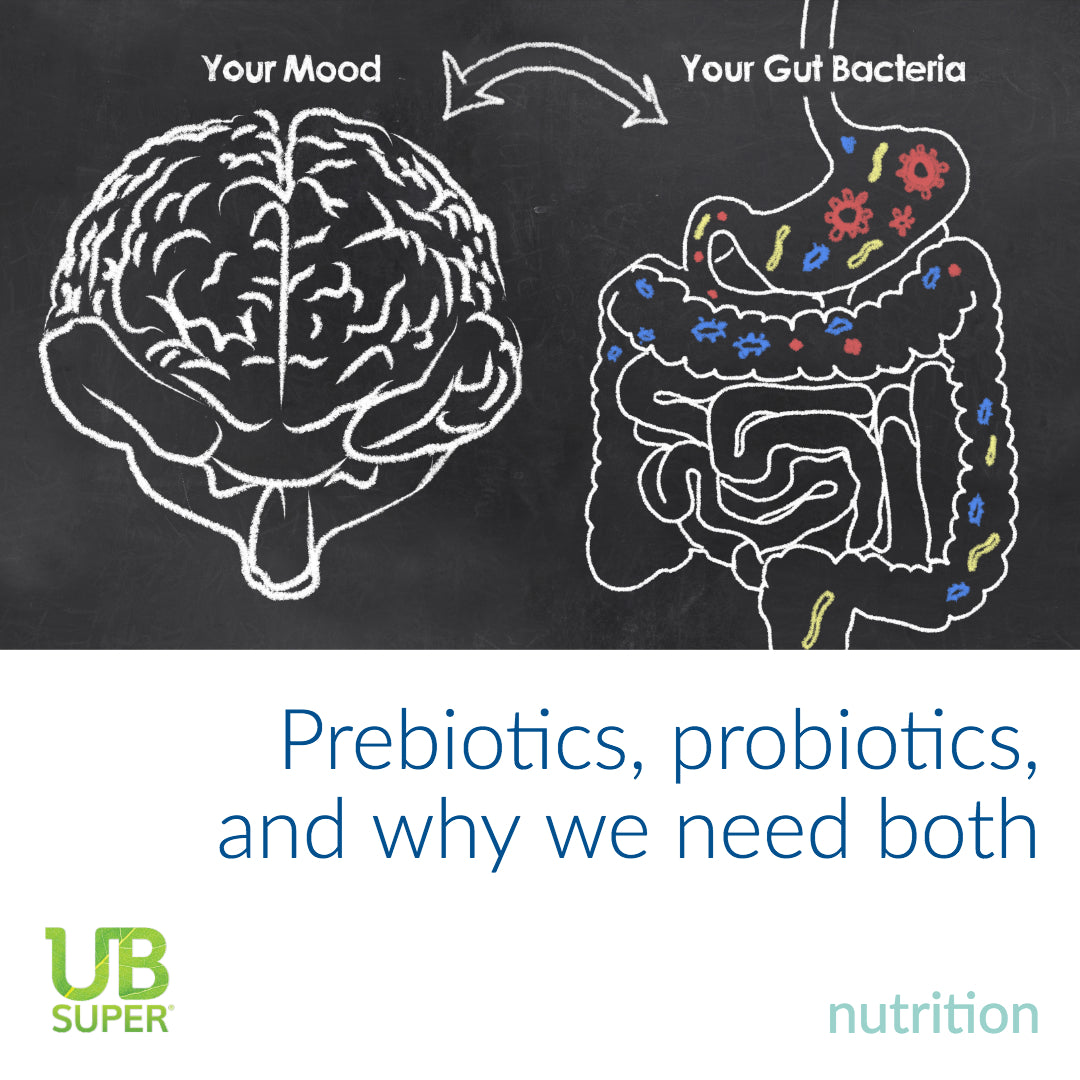What is the difference between prebiotics and probiotics, and why you need both?
Many people have heard of probiotics and the incredible ways that probiotics can optimize physical health. Probiotics live in our digestive tract, fight bad bacteria and keep the gut running smoothly. You may be unfamiliar, however, with another piece of the probiotic puzzle: prebiotics. What exactly are prebiotics, and why would you bother incorporating prebiotics into your diet? Prebiotics are the essential counterpart to probiotics—so essential, in fact, that probiotics cannot survive without prebiotics. Prebiotics are the food and fuel that probiotics consume in order to flourish. Prebiotics are carbohydrates which are indigestible by the human body. The most common of these prebiotic carbohydrates is inulin (not to be confused with insulin, a hormone that regulates blood sugar). Inulin, along with other prebiotics, feed our friendly probiotic bacterial flora to create a healthy, synergistic environment in which nutrients can be optimally absorbed. Prebiotics are so important to wellness that prebiotics were added to infant formula in order to help meet the nutritional needs of babies. The numerous benefits of taking prebiotics and probiotics are well-documented, and some of the best reasons to increase your intake of both include:- Preventing digestive disturbance from lactose intolerance, such as diarrhea.
- Reducing cancer-promoting enzymes and bacteria in the gut.
- Alleviating digestive irregularity in healthy people.
- Regulating microbial activity and reduce inflammation connected with gastrointestinal diseases.
- Reducing bacterial overgrowth.
- Preventing respiratory tract infections (common cold, influenza) and other infectious diseases.

